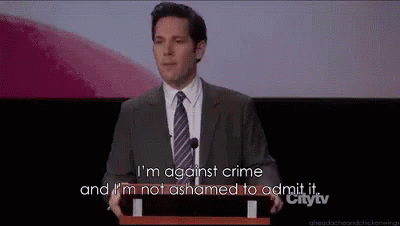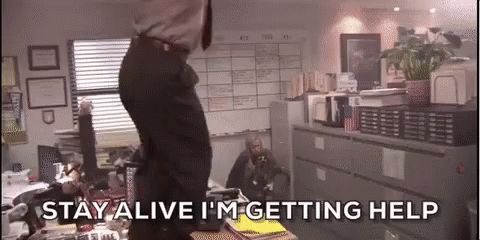My ethic of life: Part 2A
assisted suicide: cool or not cool?
As you’ve surely deduced from my previous Ethic of Life post, I’m for life and I’m not afraid to admit it.
But I also believe that under certain limited circumstances, the ending of a life (animal or human) is sometimes acceptable. Coming from a liberal, non-religious philosophical perspective, my personal ethic is certainly far more consistently pro-life (in all areas) than either side of the political spectrum. But we’ll get there.
Assisted Suicide
Some people get suicide prevention. Other people get suicide assistance.
This was the statement from a disability-rights advocacy group that stopped me in my tracks. (The group is called Not Dead Yet.) The idea of assisted suicide has long made me uncomfortable. For whatever reason, suicide is a topic that is really difficult for me, perhaps because I’m very empathetic, and the notion of a person being so distressed as to do something so drastic is really really upsetting. At any rate, assisted suicide in the case of terminal illness is a different situation. …Isn’t it?
In recent years, I’ve come to accept that some people would prefer assisted suicide to a protracted illness. But. After witnessing my mother-in-law’s death of cancer; the slow death of my former sister-in-law’s mother of early onset Alzheimer’s; my grandmother’s age-related, dementia-tinged passing; my grandfather’s sudden death from cancer complications; and my disabled uncle succumbing to disability-related septic infection…you’d think I would get on board the assisted-suicide train, but just the opposite. I saw worth, dignity and value in each of their lives, even unto the end. If any of them had chosen an earlier exit, we all would’ve missed out on meaningful time together.
The loss of autonomy due to disabling factors from illness is often what people fear most, that and being in pain. But as Not Dead Yet reasons so eloquently, the first concern is in fact ableist thinking (to use a contemporary term), and the second is largely unfounded. Rather than poorly rehash a better argument, I’ll include this animated conversation that disability activist Norman Krunc created about assisted suicide:
With regard to pain, supportive palliative care is an invaluable service that everyone is entitled to, but I don’t think it’s taken advantage of nearly enough. Palliative care offers levels of pain control that are far beyond what’s available to non-terminal patients, even up to sedation. We need not fear a painful death. Any pain or suffering you may have witnessed in a dying person is likely because you witnessed it in the past, when we didn’t have the tools we do now to ease pain, or—and this is a big one—because the individual didn’t accept palliative care at an appropriate time. So many of us are so afraid of “giving up” or accepting death that palliative and hospice care aren’t employed until the very end, usually within the final days of a person’s life. Accepting this care at an earlier point provides meaningful, pain-free and dignified time to the terminal patient.
And now for the personal anecdotes that inform my opinion.
My mother-in-law, Debbie, was only 60 when she passed away from her second bout with metastatic breast cancer. In the final few weeks of her life, she asked me to help care for her, and because I’m an at-home parent, I was able to do so. I bathed her and washed and blew dry her hair every day (she was always very fastidious about her personal care). I even learned the process of Foley catheterizing her when she lost toileting autonomy. But even had I been unavailable, she received compassionate palliative services by professionals. One of the CNAs who came to bathe her would greet her with a warm “Hi, butterfly,” and treated her with such sure-handed tenderness. If you’re afraid you’d be unable to provide appropriate care for a family member with end-of-life disability, first: you likely can learn, and second: there are supportive structures in place to help you, and to help you learn.
There was no loss of dignity in that. Providing the most intimate personal care—which is often actually easier if it’s a hospice professional, depending on the individual—is not a loss of dignity. It is exactly the opposite. When as a society (but certainly as an individual) we do not shy away from the physical realities of a disabled person’s needs, we affirm their dignity, their worthiness. To fear that for ourselves is a psychological problem, and people with psychological problems are exactly the people who receive suicide prevention. Our fears about loss of autonomy, or dependency on others, or of languishing in a nursing facility are psychosocial problems to be solved; they are not valid reasons for suicide.
I then thought of the final days of my family members’ lives, during which they were sedated and on high doses of pain medication. None of them suffered. But of course, it was painful for those of us who survived them. I can understand an individual not wishing that pain for their families and choosing an assisted suicide within the final days. But I still can’t agree with it. We can, and should, do hard things. Dealing with death, dealing with the sadness and pain of losing a loved one, is an essential life experience. Avoiding emotionally difficult experiences is perhaps our most pressing psychosocial problem: instead, we self-medicate, we fall into unrelenting depressions, we succumb to hopelessness and the sometimes violent or self-harming behaviors that accompany it.
So can I imagine a situation in which an early exit administered by a physician-prescribed overdose would be acceptable? Yes, I can. But I really can’t get behind assisted suicide as a remedy for fear, or rooted in anti-disability bias, or for avoiding uncomfortable emotional experiences.
Up next, the death penalty. I was originally going to include the death penalty along with this topic, but I’m suuuuper busy with school and my brain is absolute shit today (Winnebago Man, anyone? This is the one thing that can within three minutes get me laughing so hard it hurts, because it is so relatable. Will you do me a kindness, and watch it? Warning: foul language used to hilarious effect)
Until next time…



Thank you for this post, Erin. As you probably remember, my impulse is to be a strong supporter of the right to assisted suicide, but you have given me a lot to think about.
I agree that one of the dangers of assisted suicide is that it is too easy for aggrieved or burdened families to bring emotional pressure to bear, either overtly or subtly, that might make the person suffering from a disability or dementia feel that they should choose suicide. And you are right that a lot of the issue would disappear if we only had appropriately robust palliative care and home health aides. I have read (in The Inevitable, by Katie Englehart--highly recommended!) that the hurdle for nearly everyone is incontinence. People can't bear to think about their loved ones having to change their diapers or clean them after a bowel accident. If there were adequately-paid nursing care to handle this, how many people would still want assisted suicide?
One final issue: both my grandparents had dementia, and it made them anxious and aggressive. My grandmother was really cruel to my mom for a few years, before her dementia advanced to the point where she couldn't speak. After watching what my mom went through, I decided that I never wanted to burden my children with the same duty, and that if I started to show signs of dementia, I would choose suicide. But your essay is making me rethink this decision. Maybe I am selling my kids short, and maybe they would rise to the occasion and possibly (eventually) even take pride in how they handled it. I don't know.
Anyway, I always appreciate a well-argued case for the other side. Who knows? You may cause me to change my mind.
Came here because of Freddie's post linking to your great piece on abortion!
On both topics, my perspective is coloured by the Canadian legal environment and how we see ourselves in comparison with the U.S.
I largely agree with you on the personhood of a fetus, and feel somewhat personally uncomfortable about abortion. Yet the many horrible things that can happen to your body due to pregnancy and labour also makes me uncomfortable, and so in the balance of things, I think the mother's bodily autonomy trumps the fetus' right to life, even if she did have sex knowing procreation was possible.
Eventually there comes a point at which you've gone so far that you've gone through most of the pregnancy anyway, and if you abort, you're essentially giving birth to the dead fetus, in which case it seems quite cruel and pointless to do an "elective" abortion. But even then, I'm more in favour of the Canadian approach of "not legal/illegal, but just leaving it up to the mother, doctor, and the medical guidelines" rather than "illegal except for saving the life of the mother." While somewhat less democratic to leave the guidelines in the hands of the provincial medical associations, putting individual medical decisions in the hands of judges to decide whether the woman's life was actually in danger seems worse.
With MAiD, my view is also shaped by Canada's increasingly permissive laws. Previously I would have considered myself saddened by MAiD but supportive of ones bodily autonomy nonetheless. But last year, our laws were changed so that you can access it if you have a grevious disability (which by next year will include mental illness! And maybe some talk of allowing it for minors!) but aren't immenently dying.
This has resulted in a lot of disabled Canadians talking about new pressures from their medical teams to consider MAiD -- both implicit and sometimes explicit. It's especially egregious coming from those relying on our terrible disability welfare program (ODSP in Ontario), which keeps people in abject poverty. I hear lots of stories of people who are absolutely hopeless their financial conditions will ever get better, and so are thinking of MAiD on those grounds. That the government would rather kill you than give you food to eat is just appalling.
So I guess in my own Grand Theory, I support bodily autonomy, but with the caveat that if the government is going to supply and pay for the doctors to end your or your fetus's life, they also have a positive moral responsibility to, as much as possible, provide resources to people to make sure you're not choosing death because you simply can't afford life.